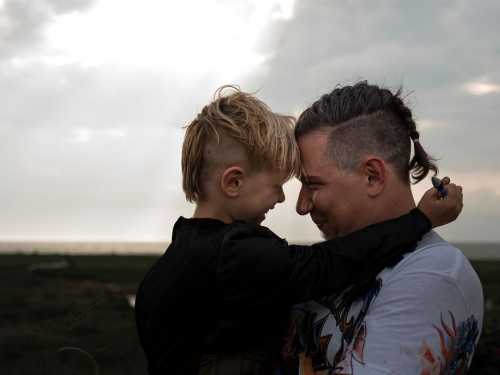
Every parent faces this sooner or later. The child's interest in learning fades. Grades become the only incentive. But is a grade a good motivator? I believe that it makes sense to stimulate awareness in your child, periodically reminding him of the true meaning of the educational process. So that he learns to study for himself and his future, and not for the sake of good grades.
Dialogue between father and son:
“Boring. Terribly boring.”
“What's boring, son?”
— Go to school. Do your homework.
— That's because you don't yet understand why you need training. You don't see its value.
— I understand. You need to study well to earn money later. It's boring anyway.
“Yes… You're generally right. But you're missing something.”
— What?
— Now I'll try to explain. Imagine that you live in the forest in a primitive tribe whose main concern is catching rats. All you have to learn is how to catch rats. They explain to you: this is necessary so that you don't die of hunger. You catch rats, cook a stinking soup from them, and so on day after day. Hunting for rats takes up all your time, so from morning to night you disappear into the forest. No one in the tribe rests, because there is so little meat in a rat – how many of them do you need to catch to feed your family!
But one day you come across a deer that happened to be near your village. A crazy thought comes to your mind: why waste all your time on rats when you can catch a deer once and then stock up on meat for later? However, in the village you are subjected to harsh criticism: no one knows how to catch deer, everyone catches rats. Rats are a stable and reliable source of food. And deer are a mere fantasy, a delusion, a dream. In short, nonsense.
And yet, you dare to try to hunt deer. You go far from the village in search of their tracks, you begin to track down the herd, observe it, study their habits. You have to starve, because now you can no longer afford to hunt rats. Returning late in the evening from your forays, you hear the mockery and frank reproaches of your tribesmen: you are a fool for them, because you break the generally accepted patterns and want to change the long-established way of life.
But you don't give up. You learn. You think, you draw conclusions, you correct mistakes. And one day, you come to the village with the skin of your first deer.
You are happy, you are inspired by success, you imagine how everyone will rush to ask you how you did it. But instead you are exposed to black envy and condemnation: you have proven to everyone that you are smarter than them, and smart people are not loved more than fools.
What's left for you? You realize that a deer hunter has no place among rat catchers, and you leave to found your own village somewhere.
However, this doesn't particularly scare you, because now you have a skill – you've learned to hunt deer, create reserves of meat, and therefore, you are absolutely independent of anyone.
Soon, deer hunting becomes a completely familiar activity for you. You create your own village, those who are not ready to put up with the pitiful participation of a rat eater settle in your place, and you understand that routine is once again beginning to entangle your life with its sticky web. What was an adventure yesterday becomes a habit today.
But one day you go out to the edge of the forest and in the distance on the horizon of a wild field you see a herd of bison. A bison is not a deer to you. And a herd of bison for the inhabitants of your village is a practically inexhaustible source of resources. You think that if you learn to hunt bison, then you will have so much free time that you can travel a lot, explore the surrounding lands, trade with neighboring tribes, develop crafts…
And you know what happens next?
— Mammoths?
“That's right. Then there will be mammoths, and then whales, and then someone else. This is the Hunter's path – the road that leads to the New, a road on which there is no place for boredom, because it is a continuous adventure. But do you know what is the most important thing about it?”
— What?
“Rats. You have to start somewhere. If you hadn't learned how to catch rats, you would never have caught your first deer.”





